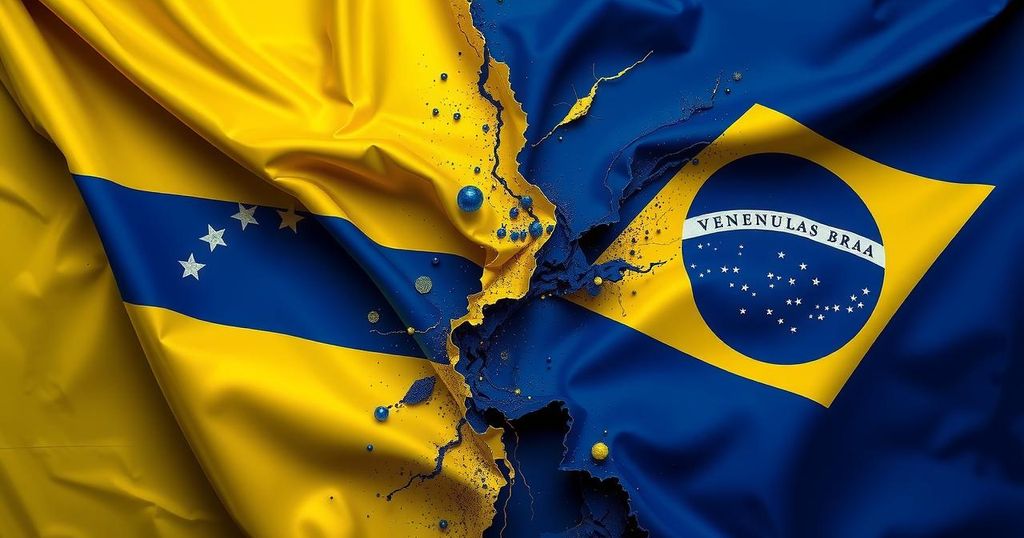Venezuela Recalls Ambassador from Brazil Amid Diplomatic Tensions

The Venezuelan government has recalled its ambassador from Brazil due to perceived rude and interventionist remarks from Brazilian officials, particularly targeting Celso Amorim, a high-level advisor. This decision follows tensions from an disputed Venezuelan election and Brazil’s recent veto of Venezuela’s BRICS admission, stirring further animosity amid significant bilateral trade and migration.
The Venezuelan government has announced the recall of its ambassador to Brazil, citing ongoing “interventionist and rude statements” from Brazilian officials as the primary reason. The foreign ministry specifically criticized Celso Amorim, chief foreign policy advisor to Brazilian President Luiz Inacio Lula da Silva, accusing him of functioning as a representative of U.S. imperialism and of making inappropriate judgments about Venezuelan democratic processes. In parallel with this diplomatic action, Venezuela’s parliament leader, Jorge Rodriguez, proposed a lawmaker vote to designate Amorim as a persona non grata, suggesting that his actions resemble those of an envoy for U.S. National Security Advisor Jake Sullivan. This diplomatic strain has escalated after a controversial presidential election in Venezuela in late July, which has seen the Venezuelan government claiming electoral victory without disclosing official ballot tallies. In contrast, the opposition has released documents claiming its candidate achieved a landslide victory. The tensions heightened when Brazil denied Venezuela’s admission into the BRICS group, a decision the Venezuelan government has denounced as “inexplicable and immoral aggression.” The bilateral relationship between the two nations has further been affected by significant migration, with at least 600,000 Venezuelans relocating to Brazil in recent years, as well as substantial trade activities, amounting to $1.3 billion in Brazilian exports and approximately $400 million in Venezuelan shipments in 2022.
The dynamics between Venezuela and Brazil have been increasingly complex, particularly following Venezuela’s contentious presidential election in July 2023. Observers have scrutinized the legitimacy of this election, with global leaders, including Brazil’s President Lula da Silva, urging Venezuelan authorities to disclose the official vote counts. The political climate has introduced challenges to the regional relationship, as Brazil maintains a critical stance towards Venezuelan governance, which is perceived as authoritarian by numerous external actors. The recent veto against Venezuela’s entrance into the BRICS group further exemplifies the strained relations, where Venezuela feels isolated from regional alliances amid the migration crisis affecting Brazil.
In summary, the Venezuelan government’s decision to recall its ambassador from Brazil underscores a deepening rift exacerbated by perceived interference from Brazilian officials. As interactions continue to unfold in response to the disputed electoral outcomes and broader geopolitical maneuvers, the late developments reflect the fragile state of affairs between the two nations, highlighting the need for dialogue to resolve the escalating tensions.
Original Source: www.usnews.com








